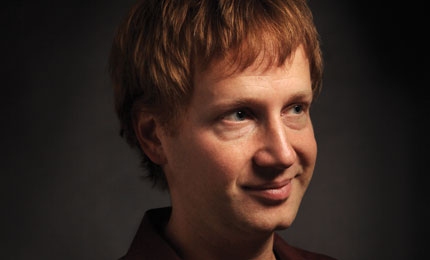Age: 35
Job Title: Communications Manager, Citadel Theatre
Why He’s A Top 40: He trumpets the success of Edmonton’s theatre community by facilitating international press coverage and putting the capital on the map as a hotbed for performing arts.
Key To His Success: “My father taught me to make everybody feel as if they all had a part in making something happen.”
When Joshua Semchuk isn’t working in his full-time job as communications manager for the Citadel Theatre, he spends his time on projects for Shumka, the Edmonton International Film Festival and Frame 30 Productions.
But whatever he’s doing, being highly organized is paramount – a lesson he learned while following his first career aspiration to become a high school teacher.
“One of the main reasons I didn’t enjoy it as a teacher was that I wasn’t very organized, and I promised myself after that, I would never be disorganized again. I bring an organizational sense of what everybody’s role should be and how it fits into the big picture,” he says. “That’s what I like about working as a stage manager for Shumka or helping out on a project for Frame 30 or at the Citadel: it’s the over-arching principle of organization behind it. This is who we have, this is their role and this is how much time we have, so let’s all work together to make it happen.”
When it comes to making things happen, Semchuk says there’s no one in the world he enjoys working with more than local artists. As an occasional casting director for Frame 30 Productions, including for the 2008 show The Greatest Auto Race on Earth, he revels in the opportunity to provide work for Edmonton actors.
“If someone wants me to help them cast [a film or play] , they have to understand that everyone I bring will be local,” he says.
But Semchuk’s contribution to the local art scene goes far beyond hiring locally. Working for the Citadel originally as a sales rep, then publicist and now communications manager, he has co-ordinated more than 1,000 media interviews since 2004, allowing Edmonton to bask in the national and international spotlight as a destination for the performing arts.
